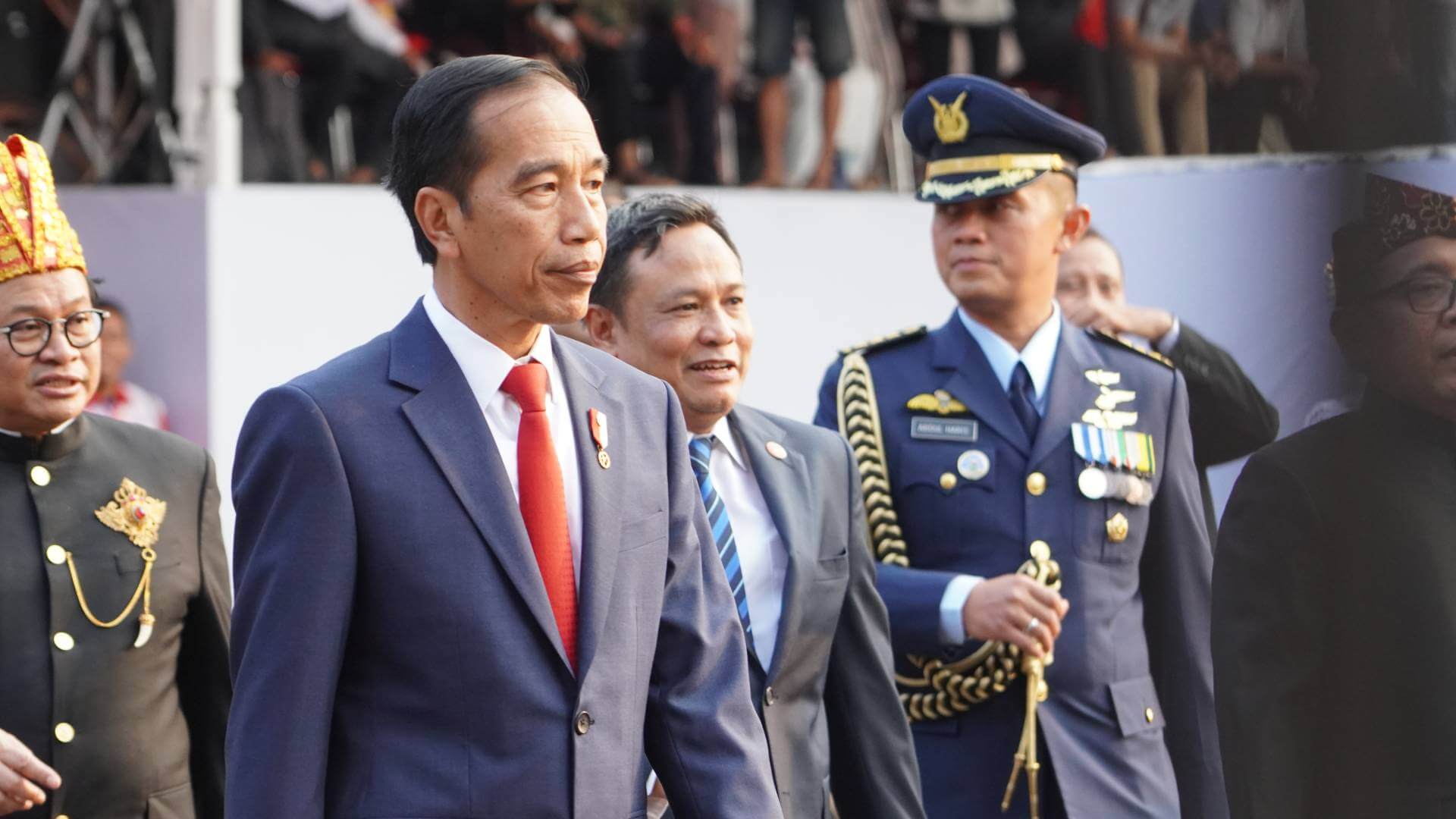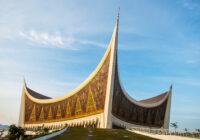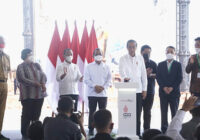On February 14, 2024, the world’s largest election held on one day will take place in Indonesia. More than 200 million Indonesians will vote for a new president, as well as both chambers of the national parliament, provincial governors, and local legislatures. Of particular importance is the presidential election, which will determine who will succeed incumbent President Joko Widodo (usually abbreviated to Jokowi). After two five-year terms, Jokowi is constitutionally barred from running for office again.
The three candidates for the presidential elections are current Defense Minister Prabowo Subianto, long-time Central Java governor Ganjar Pranovo and former Jakarta governor Anies Baswedan. A month before the election, Prabowo Subianto led in opinion polls with a margin of around 20%. He is supported by almost all parties represented in parliament and wants to continue Jokowi’s policies, including the movement of the capital from Jakarta to Nusantara on Borneo Island.
Subianto’s competitor Ganjar Pranovo also does not want to make any major changes to Jokowi’s current policies. However, he is supported almost exclusively by his party, the PDI-P (Partai Demokrasi Indonesia – Perjuangan).
The only candidate who wants some degree of change is Anies Baswedan, a political opponent of Jokowi, who was nominated by two smaller Islamic parties.
This election takes place against a backdrop of overall democratic erosion, as highlighted in the 2022 Bertelsmann Transformation Index (BTI). The BTI country report for Indonesia concluded that despite the decline in democratic quality, Indonesia remained an electoral democracy. Unlike other states in the region, Indonesia has not crossed the line to electoral authoritarianism, although it risks doing so in the medium to long term. Formally, though, the institutions of democracy remain in place and elections continue to be competitive.
Jokowi and sons — a family affair
It is unlikely that the upcoming elections will steer the nation towards more democratization. Rather they may well seal the trend of declining democratic credentials. In a surprising move, Jokowi has refrained from promoting the candidate of his long-term party PDI-P, Ganjar Pranovo. Instead, he more or less openly supports the candidacy of Prabowo Subianto, whom he defeated twice after the polarized election campaigns in 2014 and 2019. Jokowi’s endorsement of Prabowo is conveyed by thousands of billboards and posters throughout the country, which depict the two together, and also by Prabowo’s choice of his running mate. On the last day of the candidates’ registration in November 2023, Prabowo Subianto named Jokowi’s 36-year-old son, Gibran Rakabuming Raka, as his vice presidential candidate. In doing so, he wants to signal he has the political support of the incumbent and still very popular President Jokowi.
Jokowi’s political maneuver to lift his politically quite inexperienced son Gibran to the vice presidency is both questionable and damaging to Indonesia’s fragile democracy. The Constitutional Court’s decision to allow Gibran to run despite being younger than the minimum age of 40 was largely made by Jokowi’s brother-in-law, Constitutional Court Chairman Anwar Usman. A few weeks later, the Ethics Council of the Constitutional Court ordered the removal of Anwar Usman from his leadership post and banned him from participating in electoral matters. He was found guilty of a “serious ethical breach” when he used his position to pave the way for the candidacy of Gibran. However, the questionable decision remained in force.
Family dynasties are a bad feature for any democracy because they contradict the principle of equality. Jokowi’s dynastic intentions are further exacerbated by the fact that he also sent his second son, 29-year-old Kaesang Pangarep, into politics. Two days after he joined the Indonesian Solidarity Party without any previous political experience, he was elected as the new party chairman.
Authoritarian tendencies on the rise
During the election campaign, Jokowi has said several times that it would be better and cheaper for the country if there were only one round of voting, meaning that one candidate receives more than 50% of the votes in the first round of voting. Since the candidate pair Prabowo/Gibran, which is supported by Jokowi, is currently polling at around 40%, the government apparatus has launched numerous initiatives to score the missing percentage points in the first round of voting. There are clear signs that state funds are being used for the Prabowo/Gibran election campaign. In addition, the military, the police and the secret services, whose leadership is staffed by Jokowi’s confidants, do not appear to be neutral. State media and national/local government officials are also under pressure to support the incumbent president’s favorites.
Especially during Jokowi’s second term in office in the last five years, more and more authoritarian tendencies have emerged. The democratic achievements of the so-called Reform Era, which started after the resignation of long-term authoritarian ruler Suharto in May 1998, (freedom of speech and press, a strong anti-corruption agency KPK, the independence of the courts, free/fair elections, decentralization/elected local governments, reduction of the political influence of military police and more) were not completely abolished, but they were modified so that they do not impede the president’s policies. Jokowi, who many saw as a beacon of hope for Indonesia’s democracy, unfortunately turned out to be the opposite. This development is also reflected in the BTI 2022 report, which flagged a decline in commitment to democratic institutions between 2016 and 2022.
Under Jokowi, Indonesia witnessed remarkable economic growth and was able to navigate the challenges caused by the COVID-19 pandemic. The outgoing president will be remembered for this, as well as for his bold decision to move the capital. However, his leadership has tarnished Indonesia’s democratic credentials. His successor, whoever it may be, faces the difficult task of maintaining political stability and improving Indonesia’s economy, while preventing Indonesia from sliding back into being an authoritarian political system. A fix to this situation remains elusive: None of the three presidential candidates has democracy as their top priority should they win the country’s top post for the next five years.
The views expressed in this article are the author’s own and do not necessarily reflect Fair Observer’s editorial policy.
Support Fair Observer
We rely on your support for our independence, diversity and quality.
For more than 10 years, Fair Observer has been free, fair and independent. No billionaire owns us, no advertisers control us. We are a reader-supported nonprofit. Unlike many other publications, we keep our content free for readers regardless of where they live or whether they can afford to pay. We have no paywalls and no ads.
In the post-truth era of fake news, echo chambers and filter bubbles, we publish a plurality of perspectives from around the world. Anyone can publish with us, but everyone goes through a rigorous editorial process. So, you get fact-checked, well-reasoned content instead of noise.
We publish 2,500+ voices from 90+ countries. We also conduct education and training programs
on subjects ranging from digital media and journalism to writing and critical thinking. This
doesn’t come cheap. Servers, editors, trainers and web developers cost
money.
Please consider supporting us on a regular basis as a recurring donor or a
sustaining member.
Will you support FO’s journalism?
We rely on your support for our independence, diversity and quality.










Comment